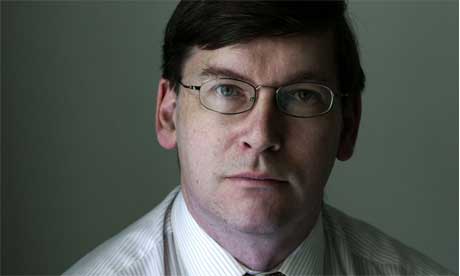http://www.guardian.co.uk/science/blog/2008/sep/11/michael.reiss.creationism
Science lessons should tackle creationism and intelligent design
Teachers need to accommodate the differing world views of students from Jewish, Christian or Muslim backgrounds – which means openly discussing creationism and intelligent design as alternatives to evolutionary theory

Photograph: Frank Baron
What should science teachers do when faced with students who are creationists? Definitions of creationism vary, but about 10% of people in the UK believe that the Earth is only some 10,000 years old, that it came into existence as described in the early parts of the Bible or the Qur'an and that the most evolution has done is to split species into closely related species.
At the same time, the overwhelming majority of biologists consider evolution to be the central concept in biological sciences, providing a conceptual framework that unifies every aspect of the life sciences into a single coherent discipline. Equally, the overwhelming majority of scientists believe that the universe is of the order of about 13 to 14 billion years old.
Evolution and cosmology are understood by many to be a religious issue because they can be seen to contradict the accounts of origins of life and the universe described in the Jewish, Christian and Muslim Scriptures. The issue seems like an ongoing dispute that has science and religion battling to support the credibility of their explanations.
I feel that creationism is best seen by science teachers not as a misconception but as a world view. The implication of this is that the most a science teacher can normally hope to achieve is to ensure that students with creationist beliefs understand the scientific position. In the short term, this scientific world view is unlikely to supplant a creationist one.
So how might one teach evolution in science lessons, say to 14 to 16-year-olds? Many scientists, and some science educators, fear that consideration of creationism or intelligent design in a science classroom legitimises them.
For example, the excellent book Science, Evolution, and Creationism published by the US National Academy of Sciences and Institute of Medicine, asserts: "The ideas offered by intelligent design creationists are not the products of scientific reasoning. Discussing these ideas in science classes would not be appropriate given their lack of scientific support."
I agree with the first sentence but disagree with the second. Just because something lacks scientific support doesn't seem to me a sufficient reason to omit it from a science lesson. When I was taught physics at school, and taught it extremely well in my view, what I remember finding so exciting was that we could discuss almost anything providing we were prepared to defend our thinking in a way that admitted objective evidence and logical argument.
So when teaching evolution, there is much to be said for allowing students to raise any doubts they have (hardly a revolutionary idea in science teaching) and doing one's best to have a genuine discussion. The word 'genuine' doesn't mean that creationism or intelligent design deserve equal time.
However, in certain classes, depending on the comfort of the teacher in dealing with such issues and the make-up of the student body, it can be appropriate to deal with the issue. If questions or issues about creationism and intelligent design arise during science lessons they can be used to illustrate a number of aspects of how science works.
Having said that, I don't believe that such teaching is easy. Some students get very heated; others remain silent even if they disagree profoundly with what is said.
I do believe in taking seriously and respectfully the concerns of students who do not accept the theory of evolution, while still introducing them to it. While it is unlikely that this will help students who have a conflict between science and their religious beliefs to resolve the conflict, good science teaching can help students to manage it – and to learn more science.
Creationism can profitably be seen not as a simple misconception that careful science teaching can correct. Rather, a student who believes in creationism has a non-scientific way of seeing the world, and one very rarely changes one's world view as a result of a 50-minute lesson, however well taught.




0 comentários:
Post a Comment
Be respectful. Comments are moderated.